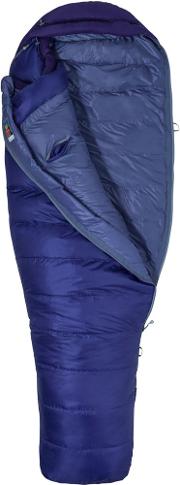Ultimate Guide to Camping in the Colorado Wilderness: Tips, Gear, and Locations
- Jackie
- Oct 28, 2023
- 3 min read
Before moving to Colorado, I had only been camping twice in my life. The East coast isn't exactly known for it's beautiful mountain vistas or dry, bug-free climates. Even though i'm late to the camping game, it's easily become one of my favorite outdoorsy weekend hobbies. I love getting out into nature and having the chance to appreciate how nice we have it. If you have pets, it's also a great way to spend time with them out in nature (plus they make great feet warmers!)

Developed Camping vs. Dispersed Camping
For camping in Colorado you have 2 options: Developed, reservation-based campsites and Dispersed camping. Both are great ways to enjoy the outdoors, and I recommend trying both of them while you're here since there are pros and cons to both!
For the established sites, you can reserve spots usually on recreation.gov or through calling some of the official government sites; there are often first-come-first-serve spots as well, but I wouldn't rely on these since there's no way to know if they're open until you get there. Since camping is extremely popular in Colorado, it's highly recommended to make reservations months in advance. Pros of developed camping are you can reserve a spot and release the burden of stressed Some cons of developed camping are obvious: you have less privacy, need to make reservations in advance, and you have to pay fees.
Dispersed camping is done on undesignated, public land and is free of cost. You need to make sure you're not camping on anyone's private property and that you're camping on BLM or on public land in a National Forest. It takes a bit of research, but it can be very rewarding when you find worthwhile spots! Pros of dispersed camping are you can be more spontaneous in planning, it's free of cost, and you have tons of privacy. The major cons are it's primitive (so no bathroom facilities) and it takes more research to find good places. I would use this site to search for free campsites!
Where to Go
There's no shortage of campsites across all of Colorado, so it's really based on what area you're looking to go. I tend to choose campsites that are more South since the northern part of the state is mostly Rocky Mountain National Park area. If you want to camp in Rocky Mountain National Park, then you can check for availability on recreation.gov, or for wilderness backcountry permits on their official government website. For walk-ins, the park ranger said you can attempt to get camping sites on the day of for llama or horse-only sites, since those often don't get reserved, so you can likely snatch those on a walk-in basis tot heir permit office.

If you're driving far away, I recommend opting for developed campsites. If you're looking for a more bougie campsite (or "glamping") a few hours south of Denver, near the Royal Gorge, then I recommend the Royal Gorge cabins. They have cabins, yurts, and designated sites, but the best part is they have showers (with some of the best shampoo/conditioner amenities). For primitive/dispersed campsites, I've found some great places near Paradise Cove in the Pike National Forest and just outside of Buena Vista.
If you're looking to do some night sky photography, then book a few nights at the Black Canyon of the Gunnison National Park campsite (a registered Dark Sky park) when there is new moon (you can check out the moon phases online). A new moon is better for milky way photography because there won't be any light from the moon getting in the way, don't forget your tripod either!
What to Pack
Before setting out on your camping trip, make sure you've got everything you need.
Here is the general list of things you need:
Tent
Sleeping Bag and Pad
Camping Blanket
Pillow
Lantern
Stove (Colorado can issue statewide firebans when wildfires are in season, so this is a great alternative if you can't make a fire)
Cooler with Food and Alcohol (see below)
Camping Chair
Hammock
Shower Wipes
Portable Chargers
What to Eat
If you don't eat meat like me, there are great vegetarian and vegan alternatives nowadays. My favorite vegan hotdogs are the brand Smartlife, they taste cleaner than real hotdogs, but the downside is they are somewhat low in calories, so you'll have to pack lots of them to stay full! If you're doing backcountry camping for a few days then I recommend getting freeze dried food (since it's easily packable and you just need water). If you're not into cooking at all, then another great alternative is Soylent since it's high in calories and requires no preparation. Also, don't forget alcohol! I always love a refreshing cider or some whisky to let go a little bit.









































Comments